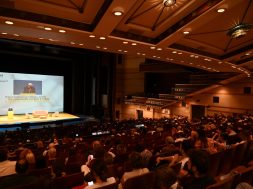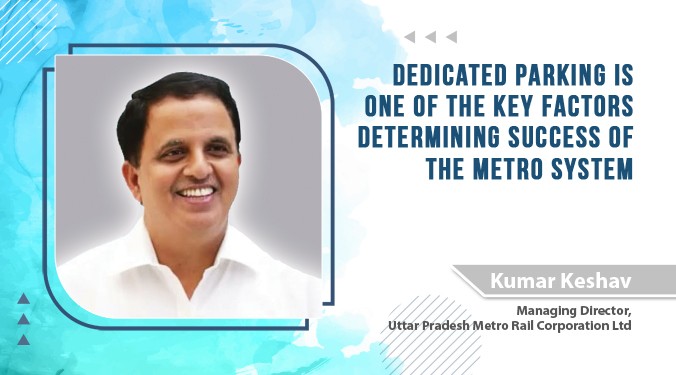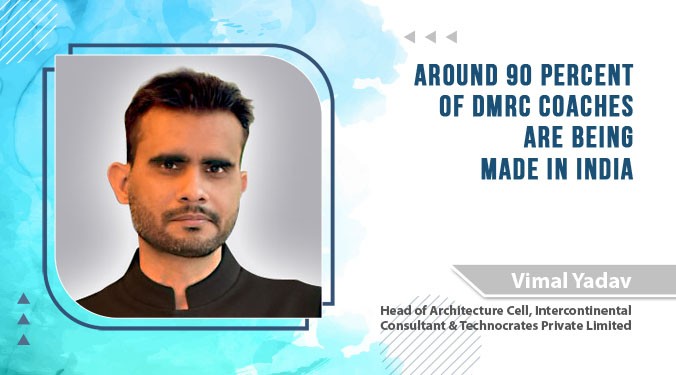Information and data are key elements of efficient smart cities
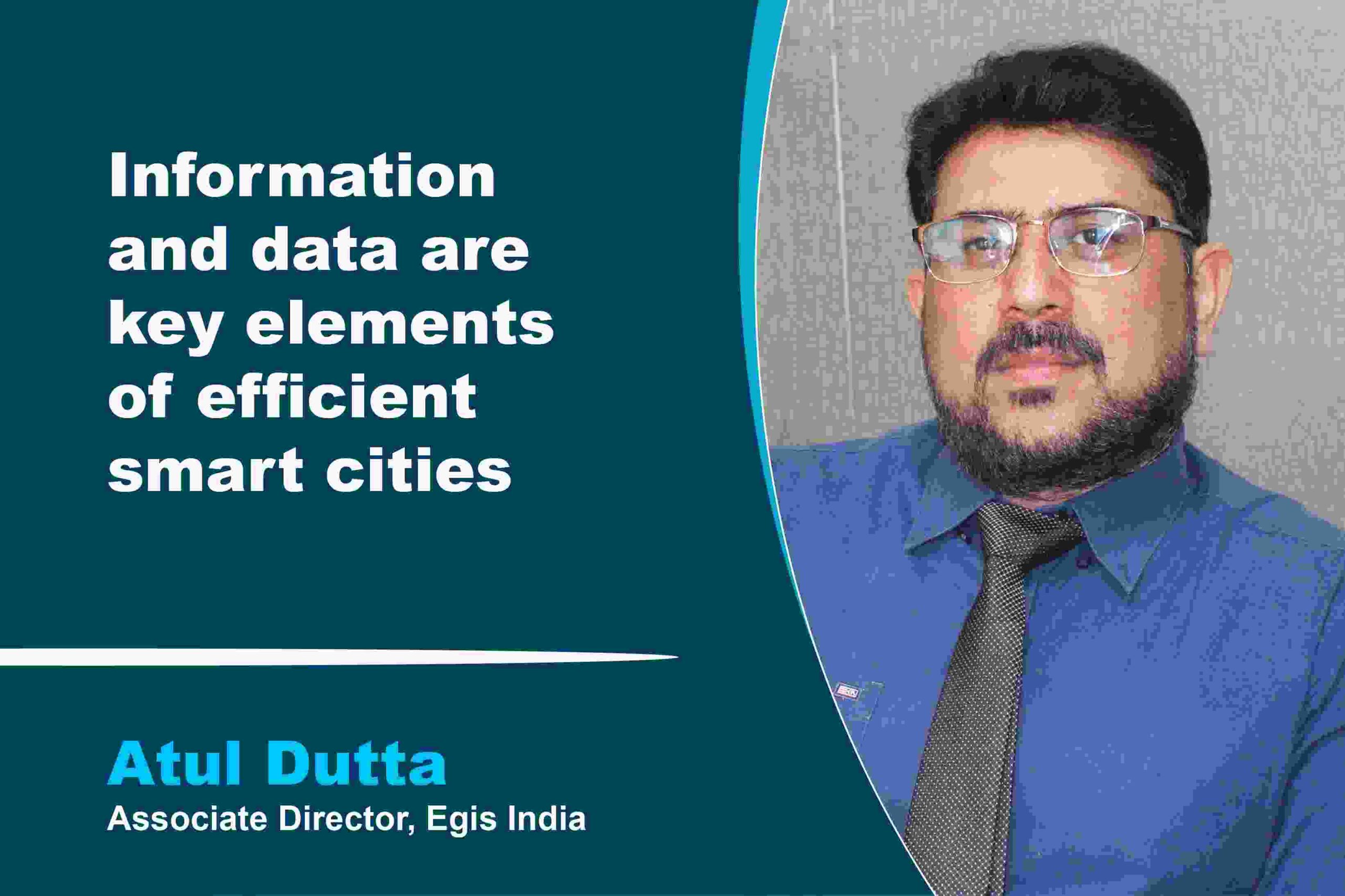
For designing an efficient smart city it is important to design ICT (Information & Communication Technology) infrastructure to support the smart city services and functionalities says Atul Dutta, Associate Director, Egis India
To what extent does data play an important role in enhancing residents’ quality of life in a smart city?
Smart Cities employ various techniques to collect data. It then uses insights gained from that data to manage assets, resources and services efficiently, in return using that data to better improve the operations across the city. In the light of more recent times new technologies and techniques at the facility of the city have ascended such as: big data, internet of things, artificial intelligence, block chain and data analysis tools are being the literature as the few of the promising technological tools. Data Sciences’ main determination is to reach functionality and for that it is necessary to abridge the phenomena into numbers. Furthermore, the digitization of services and limited manual processes is leading to more effective governance and service deliveries from the ULBs. To achieve such sustainable goals, Integrated command and control centres must be established in the cities. One of the primary objectives of such a mission shall be to enhance the safety and security, improve efficiency of municipal services and promote better quality of life for the residents. To achieve these objectives, cities should foster the development of a robust ICT(Information & Communication Technology) infrastructure that supports digital applications and ensures seamless steady state operations, city management, surveillance, emergency response mechanisms and real time tracking of services and vital city metrics throughout the city.
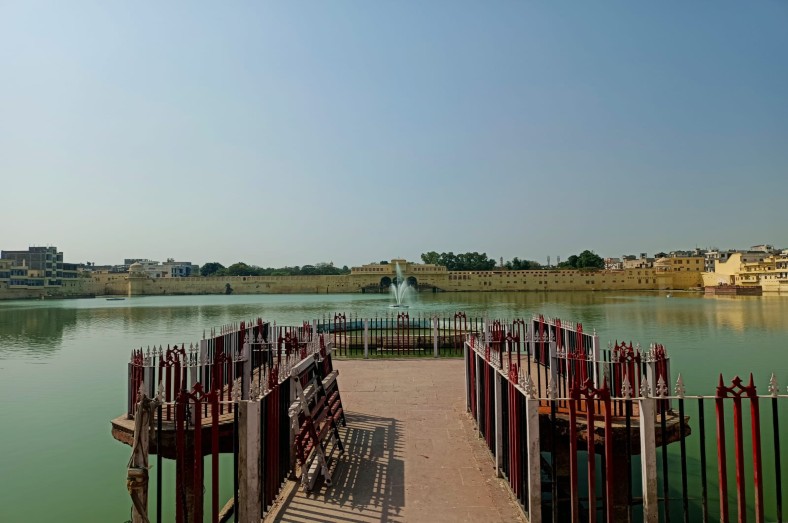
What are the key products and technologies which will consistently play an important role as smart cities grow in India?
Information and data are key elements of efficient smart cities. The information age furthered by the inception of the internet has made smart cities possible. With its advent, there has been provision and homogenising of new technologies that helps us in mapping and representing data flows and morsels of information lodged in our built environment for the improvement of design and management of cities with the focus on creating more human-centric (imbibing with tech-centric systems) and transparent systems. Consequently, smart cities pursue to be the place of collectivising urban power and to increase the strength of cities by systemizing the city, government and its citizens.
For designing an efficient smart city it is important to design ICT infrastructure to support the smart city services and functionalities. This amalgamation of ICT and data, will bridge the gap between government and citizens. It also secures the participation of its inhabitants living in the city and collects their opinions about liveability in the cities.
The key infrastructure that formulates in a smart city and also plays a major role consistently for its growth are its sensors and data centres. These two components allow the civic authorities to provide crucial services more rapidly and in a better and efficient manner. This sanctions them great help in managing public services in real time to enhance the quality of life for its citizens through traffic management, garbage collection, waste disposal, irrigation systems, assisted parking, alerting the authorities etc.
What is your take on the progress of the Indian Smart City Mission so far and in your opinion how will it help India in building a sustainable future?
With the smart city illustrations coming into picture, the layers of government initiatives are also transforming into an e-governance eco-system on a larger and functional magnitude. This is helping in modelling the method of promotion of alternative visions and employment of tools that the Big – Tech proposes alongside working with the government authorities allowing for the improvement of cyber – human dynamics that are not concentrated on the notion of exploitation and abstraction. Henceforth, there is an earnestness for urban economy that nurtures interchange rather than abstraction since data abstraction economies consign citizens a flaccid role. Thereinafter, the altercation based urban economies must be corresponded with public policies which promote equality between citizen relationships, citizen to businesses and between the citizens and government. The smart city mission has not only worked on social infrastructure, digitization and globalisation for the improvement of its citizens but has also worked immensely on a large scale on physical infrastructure and services on a materialised plane as well.
24
Cookie Consent
We use cookies to personalize your experience. By continuing to visit this website you agree to our Terms & Conditions, Privacy Policy and Cookie Policy.
